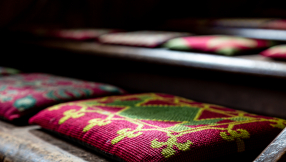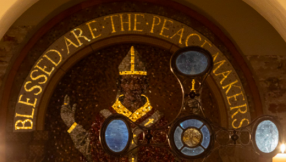
The Bible could be considered "inflammatory" and seized by police if proposed new hate crime laws get the go ahead in Scotland, The Christian Institute has warned.
In a submission to Holyrood's Justice Committee on the Scottish hate crime Bill, the organisation said that the legislation risked having a "chilling effect on free speech" that would be detrimental to traditional Christian perspectives of sexuality.
The Christian Institute is one of many criticis of the Hate Crime and Public Order (Scotland) Bill that proposes criminalising words or behaviour perceived as "abusive" towards certain groups.
The Catholic Church, lawyers, police, the BBC, comedians and secularists have also raised concerns about the impact of the legislation on free speech.
The Christian Institute's Ciarán Kelly told the Daily Express that the legislation as it currently stands lacks sufficient protections for free speech.
He raised particular concerns over wording in the Bill that would allow police to enter premises and take "forfeited material" which would then be "disposed of in such manner as the court may direct".
He fears that Christian books and "even the Bible itself" could fall under such material.
"We've already been helping street preachers wrongfully arrested for preaching the Bible in public," he said.
"There may not even be a prosecution never mind a conviction, but it risks creating a chilling effect on free speech – something that the 'stirring up hatred' offences would exacerbate.
"The new offences cover 'abusive' behaviour intended to 'stir up hatred' but no explanation is given as to what these terms actually mean.
"Would it be 'abusive' and 'hateful' to quote the Bible's teaching on marriage, gender or sexual ethics? Some groups would say yes. There is a real risk of malicious reports from activists who wish to stop Christians expressing their beliefs."
He added: "The potential reach of the offences is enormous, affecting religious practice in public and in private.
"Christians should not live in fear of expressing their beliefs."













